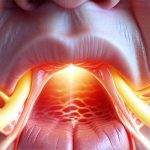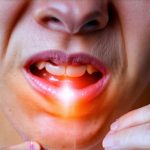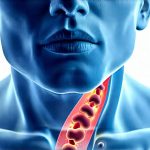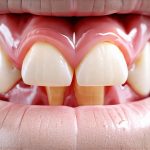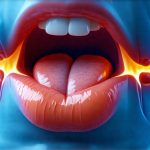Acid reflux, also known as heartburn, is an incredibly common condition affecting millions worldwide. It occurs when stomach acid flows back up into the esophagus, causing a burning sensation in the chest, and sometimes even reaching the throat and mouth. While dietary triggers are often discussed—spicy foods, fatty meals, citrus fruits—one beverage consistently appears in conversations about exacerbating reflux: coffee. The relationship between coffee and acid reflux isn’t straightforward; it’s not always as simple as “coffee is bad for reflux.” Many factors come into play, including the type of coffee, individual sensitivity, and how it’s consumed. Understanding these nuances is crucial for anyone who enjoys their daily cup but also struggles with this uncomfortable digestive issue.
The question “Can I drink coffee if I have acid reflux?” doesn’t have a one-size-fits-all answer. It depends heavily on the individual. Some people can tolerate coffee without any issues, while others find even small amounts significantly worsen their symptoms. The key is to understand why coffee might contribute to reflux and then explore strategies for managing its potential impact. This means looking beyond just avoiding coffee altogether – which isn’t always necessary or desirable – and considering modifications that could allow you to continue enjoying your favorite brew with minimal discomfort. It’s about finding a balance between pleasure and well-being, and being informed about how this popular beverage interacts with your digestive system.
The Science Behind Coffee & Acid Reflux
Coffee’s potential to trigger acid reflux stems from several mechanisms, not just its acidity. While coffee is acidic – with a pH level typically ranging from 4.85 to 5.13 – the acidity itself isn’t always the primary culprit. It’s more about how coffee interacts with the lower esophageal sphincter (LES), the muscular valve that prevents stomach acid from flowing back up into the esophagus. Caffeine, and other compounds in coffee, can cause the LES to relax, increasing the likelihood of reflux. This relaxation allows stomach acid to escape where it doesn’t belong.
Beyond caffeine, even decaffeinated coffee can trigger symptoms for some individuals. Researchers have identified other components in coffee – like chlorogenic acids – that stimulate gastric acid production, independent of caffeine. This means that even if you switch to decaf, you might still experience reflux due to these compounds. Further complicating matters is the way coffee stimulates peristalsis, the wave-like muscle contractions that move food through the digestive tract. While generally helpful for digestion, increased peristalsis can also increase pressure in the stomach, potentially forcing acid upward.
The impact of coffee varies significantly between people. This variance is likely due to differences in individual sensitivity, overall health, and even genetics. Someone with a naturally strong LES may be less affected by coffee than someone with a weaker one. Additionally, those who experience reflux frequently or have conditions like hiatal hernias might be more susceptible to coffee-induced symptoms. It’s important to remember that these are general mechanisms, and your personal experience is what matters most. If you suspect you have underlying issues related to digestion, understanding hidden food intolerance can be helpful.
Identifying Your Coffee Trigger Points
Pinpointing exactly how coffee affects you requires a bit of self-observation and potentially some dietary adjustments. Keeping a food diary can be incredibly helpful in identifying trigger points. Record what you eat and drink, along with any symptoms experienced, noting the timing and severity of reflux episodes. This allows you to correlate your coffee consumption with symptom onset and identify patterns.
Here’s a suggested approach:
1. Eliminate coffee entirely for 7-14 days, allowing your digestive system to “reset.”
2. Reintroduce coffee gradually, starting with small amounts (e.g., ¼ cup) and monitoring your symptoms closely.
3. Experiment with different types of coffee – drip, French press, espresso – as brewing methods can influence acidity and other compounds.
4. Pay attention to when you drink coffee: on an empty stomach versus after a meal, or before bed.
Beyond the type of coffee itself, consider how it’s consumed. Adding milk or creamer might seem helpful (and for some, it is!), but dairy can actually worsen reflux in others. Sugar and artificial sweeteners could also play a role. The goal isn’t necessarily to eliminate coffee altogether, but to understand what aspects trigger your symptoms and adjust accordingly. Understanding water quality is also important as reactions can mimic reflux.
Beyond Caffeine: Exploring Coffee Alternatives
If you find that coffee consistently triggers acid reflux, don’t despair! There are many delicious alternatives you can explore. Herbal teas like chamomile or ginger tea are gentle on the stomach and offer soothing properties. Chicory root “coffee” provides a similar flavor profile without the caffeine. Many people also enjoy golden milk (turmeric latte), which is known for its anti-inflammatory benefits.
However, it’s important to note that even some alternatives can cause issues. Peppermint tea, while generally considered calming, can actually relax the LES and worsen reflux in some individuals. Citrus teas should be avoided if you are sensitive to acidic beverages. The key is to approach substitutions with the same mindful awareness you apply to coffee – observe how your body responds and adjust accordingly. Don’t assume that just because something is marketed as a “healthy” alternative, it will automatically be reflux-friendly. If caffeine itself seems to be a major trigger, explore avoiding caffeine strategies.
Modifying Your Coffee Consumption
Even if you can’t eliminate coffee entirely, there are several strategies to mitigate its potential impact on acid reflux. One effective approach is to drink coffee with or after a meal rather than on an empty stomach. Food helps buffer the acidity and slows down gastric emptying, reducing the likelihood of reflux. Another strategy is to switch to lower-acid coffee varieties, such as Arabica beans, which generally contain less chlorogenic acid than Robusta beans.
Consider brewing methods too. Cold brew coffee tends to be less acidic because the cold brewing process extracts fewer acids from the coffee grounds. French press coffee can retain more oils that may irritate the esophagus, so drip coffee or pour-over might be a better choice. Finally, limit your intake. Smaller portions are often easier to tolerate than large amounts. These small changes can make a significant difference in managing reflux symptoms without sacrificing your love for coffee. For individuals with IBS, it’s worth investigating fruit avoidance as part of a broader dietary strategy.
It’s also worth mentioning lifestyle factors that contribute to acid reflux beyond just dietary choices. Maintaining a healthy weight, avoiding tight-fitting clothing, and elevating the head of your bed while sleeping can all help reduce reflux episodes. If you experience frequent or severe acid reflux, it’s essential to consult with a healthcare professional to rule out underlying medical conditions and discuss appropriate treatment options. Remember that this information is for general knowledge and informational purposes only, and does not constitute medical advice. Also consider if water additives might be contributing to your symptoms. Finally, understanding 5 foods to avoid can further refine your diet for optimal digestive health.



